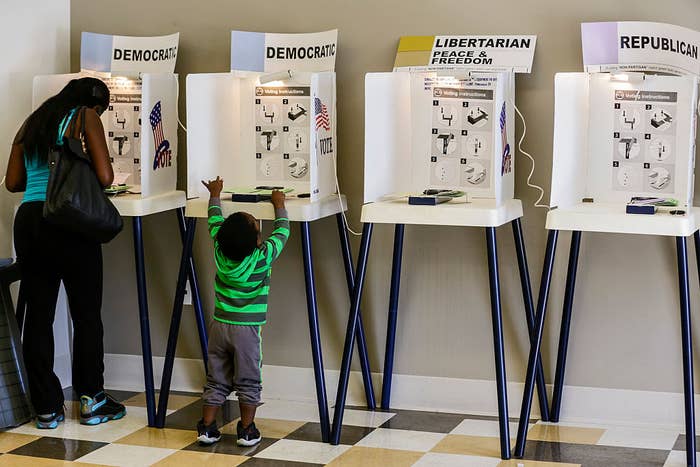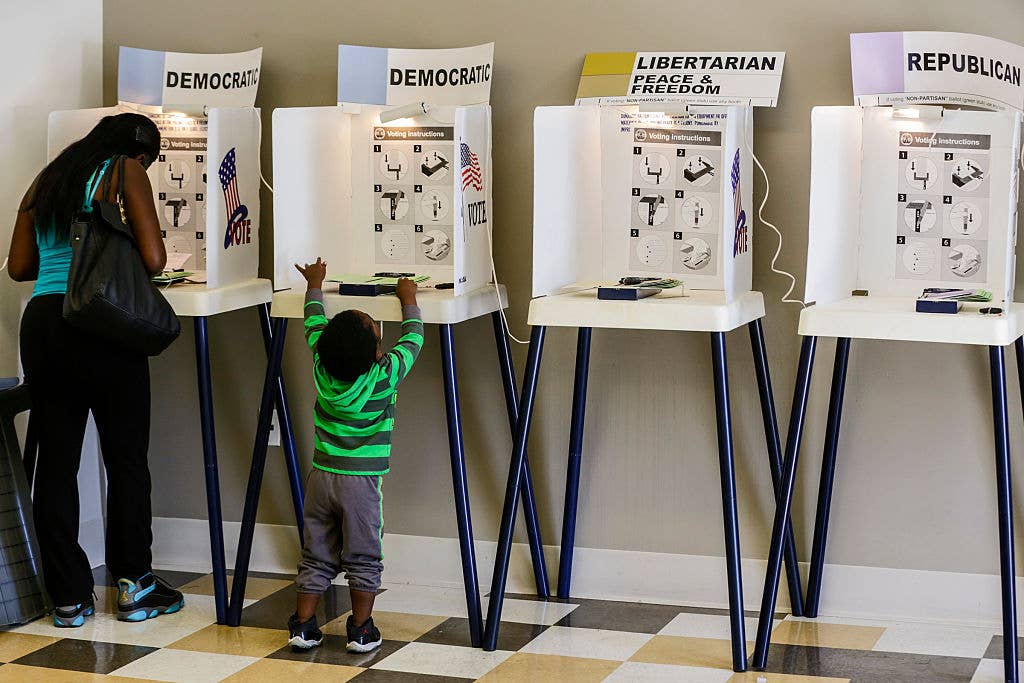
Donald Trump is right about the upcoming election being rigged, but not in the way he thinks.
The GOP nominee took to Twitter Sunday to once again warn his supporters that the upcoming presidential election will be fixed.
"The election is absolutely being rigged by the dishonest and distorted media pushing Crooked Hillary - but also at many polling places - SAD," Trump tweeted.
The “billionaire's” idea of a political system rigged against him to support his Democratic opponent has become something of an obsession for the Trump campaign as he’s dipped in the polls in recent weeks. In fact, Trump campaign surrogate Rudy Giuliani appeared on CNN’s “State of the Union” on Sunday with the same message.
“They leave dead people on the rolls, and then they pay people to vote those dead people four, five, six, seven, eight, nine times,” Giuliani said, adding, “dead people generally vote for Democrats.”
Republican vice presidential candidate Mike Pence even had to talk down a Trump supporter at a rally who threatened a "revolution" if Hillary Clinton is elected on Novemeber 8.
Writers like Jamelle Bouie at Slate have pointed out the danger of the Trump campaign convincing its supporters that the election will be rigged and encouraging them in some instances to “watch” the polls. Lost in much of the legitimate concern over the consequences of Trump’s claims, however, is the bold-faced hypocrisy of a Republican politician like Trump decrying the prospect of a rigged election.
To be sure, in the wake of President Obama’s election and reelection, it has been Republican lawmakers who have done the most to rig elections in the favor of their party by enacting onerous voter ID laws and other restrictions that make it harder for young people and people of color to vote—especially in states that could swing the election.
According to experts at NYU’s Brennan Center, after the 2010 election and the gutting of the Voting Rights Act in 2013, state lawmakers across the country introduced hundreds of bills to make it harder to vote. Those measures resulted in new laws in 20 states. Fourteen of those states—Alabama, Arizona, Indiana, Kansas, Mississippi, Nebraska, New Hampshire, Ohio, Rhode Island, South Carolina, Tennessee, Texas, Virginia, and Wisconsin—will have their new restrictions in place for the first time for the upcoming presidential election.
Those restrictions will undoubtedly have an impact on voters of color and were likely designed for that purpose. The Brennan Center also found that of the 11 states with the highest black turnout in 2008, six have new voter restrictions in place and, of the 12 states with most growth in their Latino populations, seven have passed laws that make it harder to vote.
Furthermore, all of the evidence points to the fact that voter impersonation, as described by Rudy Giuliani and the Republican lawmakers behind the new voter restrictions, rarely happens. In fact, a 2014 Washington Post study found that, out of more than one billion ballots cast from 2000 to 2004, only 31 cases of voter impersonation were found. Also, a specialized unit within the DOJ that was formed for the sole purpose of finding instances of voter fraud during the 2002 and 2004 election, found that an estimated 0.00000013 percent of ballots cast those years were fraudulent.
With no legitimate cause for new voter restrictions, the only logical reason Republican lawmakers might enact restrictive voter ID laws in states with large populations of people of color would be to disenfranchise potential Democratic voters. That's what the Trump campaign would be focused on if it actually cared about the integrity of our voting system. Instead, Trump and others are ginning up myths of "dead" voters and encouraging Trump supporters to show up at the polls to intimidate voters their party has already worked to disenfranchise—all in the name of democracy.
The irony would be funny if the potential consequences weren't so terrifying.

